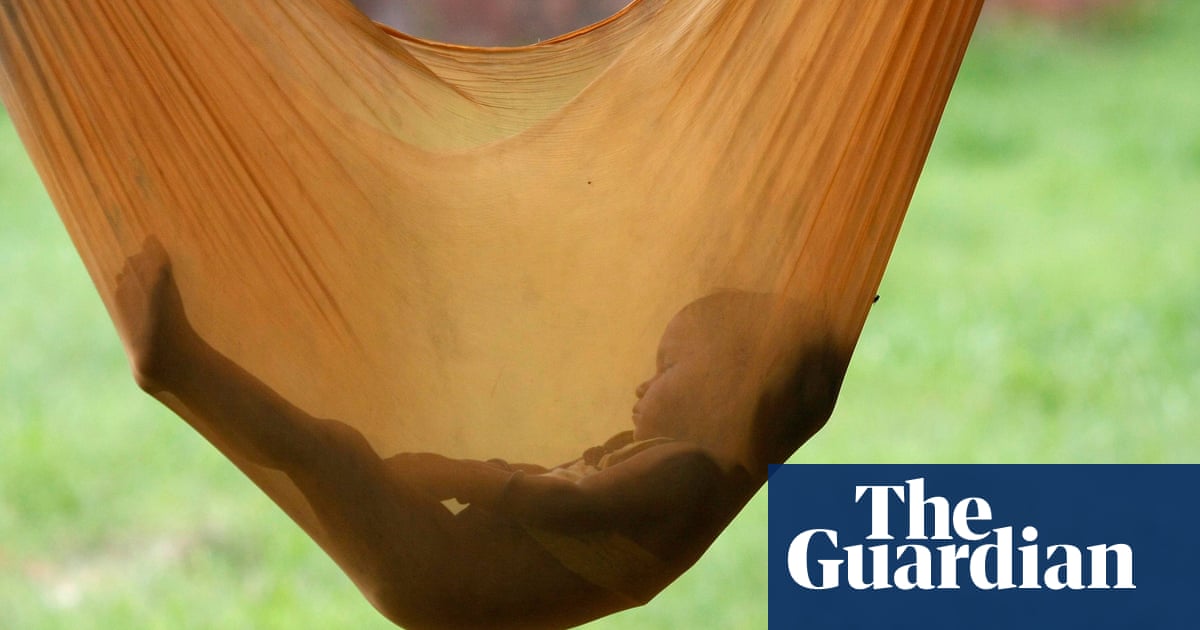
If you have trouble getting to sleep, it might be worth investing in a hammock: scientists say a gentle rocking motion not only helps people to fall asleep more rapidly but also improves the quality of sleep and the memory of the sleeper.
While parents have long employed rocking as a way to calm babies and send them to sleep, some studies have suggested it helps adults too. Now researchers say they have found evidence to back this up and discovered further benefits to boot.
“Rocking in people that do not have any sleep problems can still improve sleep quality, and the beneficial effects of sleep on – for instance – memory also seem to be enhanced,” said Dr Paul Franken, a co-author of the research, from the University of Lausanne in Switzerland.
Writing in the journal Current Biology, he and colleagues in Lausanne and Geneva reveal that 18 young participants without sleep problems spent three nights in a laboratory: one night getting used to the environment, one night being monitored while sleeping in a stationary bed and one night being monitored with the bed gently rocking from side to side.
Participants were asked to learn pairs of unrelated French words and were then tested on their ability to recall these pairs both before and after each of the test nights. Brain waves of the participants were monitored as they slept using EEG, and other metrics such as heart rate were also recorded.
The brain wave data revealed that a gentle rocking did not affect the overall time participants spent asleep but did shorten their transition to “real” sleep.
Participants spent longer in “deep sleep”– known technically as stage three non–rapid eye movement sleep – and experienced fewer disruptions to this sleep when rocked. The team say this might be linked to the finding that rocking changed the number and timing of particular patterns of brainwaves that occurred during this phase of sleep. These patterns are also related to consolidating memories, they add.
Indeed, when the team looked at how well participants fared on the memory test, they found that those who had been rocked as they slept made fewer mistakes and got more pairings correct than those who had slept on a stationary bed.
Further experiments carried out in mice and published in a separate study shed light on how rocking might help with sleep. The team found that the mice fell asleep faster and crammed more periods of sleep into their hours of rest when they were rocked. However, rocking had no effect on the brainwaves of the sleeping mice, suggesting that it did not affect the quality of their sleep.
The mice also seemed to spend less time exploring when they woke up. “[Besides inducing sleep], why people rock their babies is also that it relaxes [the babies], and they become less active when they are awake,” said Franken.
A key finding was that mice that lacked a key component of the vestibular system – which is based in the inner ear and is involved in the sense of balance and body position – showed no differences in their sleep when rocked. The authors say this supports the theory that this system is part of the mechanism by which rocking affects sleep. The team add that it also explains why the beneficial effect for mice kicked in at a higher rate of rocking than in humans: mice have less sensitive vestibular systems.
Prof Derk-Jan Dijk, director of the Sleep Research Centre at the University of Surrey, welcomed the research, saying it opened up the possibility of new ways to improve people’s sleep without drugs. But researchers needed to look beyond healthy young participants to probe potential benefits, he added.
“It will now be important to repeat these experiment in older people – who have less deep sleep and lower sleep continuity – and patients with sleep complaints and sleep disorders,” Prof Dijk said.
Source: TheGuardian
